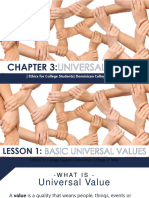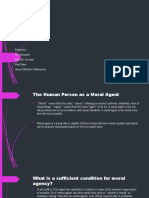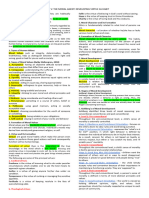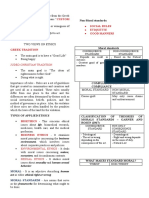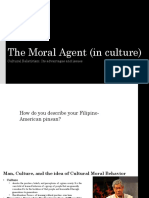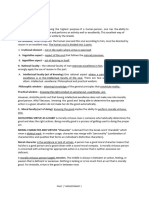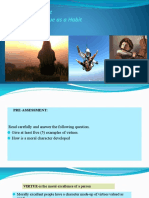0% found this document useful (0 votes)
21 views40 pagesUnderstanding Moral Development
1) The document discusses stages of moral development according to Lawrence Kohlberg, ranging from pre-conventional to conventional to post-conventional levels.
2) It defines key concepts like human acts, acts of man, culture and how culture influences morality.
3) Kohlberg's theory proposes that moral reasoning develops through six identifiable stages, with later stages prioritizing more universal ethical principles over self-interest or rules defined by specific groups.
Uploaded by
adcan.ivanCopyright
© © All Rights Reserved
We take content rights seriously. If you suspect this is your content, claim it here.
Available Formats
Download as PDF, TXT or read online on Scribd
0% found this document useful (0 votes)
21 views40 pagesUnderstanding Moral Development
1) The document discusses stages of moral development according to Lawrence Kohlberg, ranging from pre-conventional to conventional to post-conventional levels.
2) It defines key concepts like human acts, acts of man, culture and how culture influences morality.
3) Kohlberg's theory proposes that moral reasoning develops through six identifiable stages, with later stages prioritizing more universal ethical principles over self-interest or rules defined by specific groups.
Uploaded by
adcan.ivanCopyright
© © All Rights Reserved
We take content rights seriously. If you suspect this is your content, claim it here.
Available Formats
Download as PDF, TXT or read online on Scribd
/ 40



